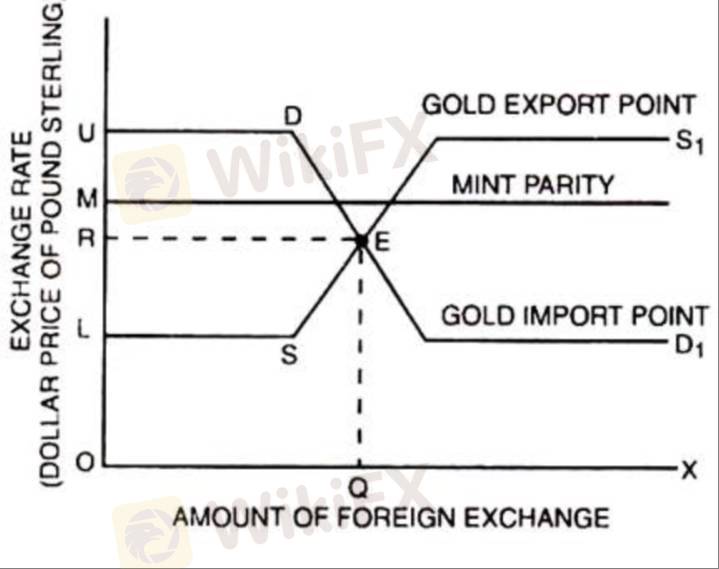
2025-02-13 05:46
อุตสาหกรรมExchange rate determination: theories and models
#Firstdealofthenewyearastylz
1. Purchasing Power Parity (PPP)
- Theory: Exchange rates adjust to equalize the price of a basket of goods between two countries.
- Implication: Long-term exchange rates are determined by relative inflation rates.
2. Interest Rate Parity (IRP)
- Theory: Exchange rate differences reflect interest rate disparities between countries.
- Implication: Investors will adjust their investments across borders, causing the exchange rate to reflect interest rate differences.
3. Monetary Model
- Theory: Exchange rates are influenced by money supply and demand in different countries.
- Implication: A country with higher inflation or money supply growth will see its currency depreciate.
4. Asset Market Model
- Theory: Exchange rates are determined by demand for financial assets denominated in different currencies.
- Implication: Expectations about economic conditions and interest rates affect exchange rates.
5. Balance of Payments Model
- Theory: Exchange rates are influenced by the trade balance and capital flows between countries.
- **Implication**: A trade surplus leads to currency appreciation as foreign buyers need the local currency.
6. Mundell-Fleming Model
- Theory: Combines fiscal and monetary policies with capital mobility to explain exchange rate movements in an open economy.
- Implication: Exchange rates are affected by government policies and international capital flows.
7. Government Intervention
- Theory: Governments may intervene to stabilize or influence exchange rates.
- Implication: In managed floating systems, exchange rates can be influenced by both market forces and government actions.
This version highlights the core ideas behind each model in a more concise format. Let me know if you'd like further adjustments!
ถูกใจ 0

Mywoman
Händler
การพูดคุยยอดนิยม
ดัชนีทางเทคนิค
สอบถามค่ะ
ดัชนีทางเทคนิค
ผูกบัญชี
ดัชนีทางเทคนิค
vps พึ่งใช้มาได้ 7 วัน
ดัชนีทางเทคนิค
ประกาศรายชื่อผู้โชคดี แจกหนังสือ Forex
ดัชนีทางเทคนิค
vps 7 วันแล้วถูกตัด
ดัชนีทางเทคนิค
ขอคำแนะนำหน่อยครับ
การแบ่งแยกตลาด

แพลตฟอร์ม

งานแสดงสินค้า

ตัวแทนโบรกเกอร์

รับสมัครงาน

EA

อุตสาหกรรม

ราคาตลาด

ดัชนี
Exchange rate determination: theories and models
 ฮ่องกง | 2025-02-13 05:46
ฮ่องกง | 2025-02-13 05:46#Firstdealofthenewyearastylz
1. Purchasing Power Parity (PPP)
- Theory: Exchange rates adjust to equalize the price of a basket of goods between two countries.
- Implication: Long-term exchange rates are determined by relative inflation rates.
2. Interest Rate Parity (IRP)
- Theory: Exchange rate differences reflect interest rate disparities between countries.
- Implication: Investors will adjust their investments across borders, causing the exchange rate to reflect interest rate differences.
3. Monetary Model
- Theory: Exchange rates are influenced by money supply and demand in different countries.
- Implication: A country with higher inflation or money supply growth will see its currency depreciate.
4. Asset Market Model
- Theory: Exchange rates are determined by demand for financial assets denominated in different currencies.
- Implication: Expectations about economic conditions and interest rates affect exchange rates.
5. Balance of Payments Model
- Theory: Exchange rates are influenced by the trade balance and capital flows between countries.
- **Implication**: A trade surplus leads to currency appreciation as foreign buyers need the local currency.
6. Mundell-Fleming Model
- Theory: Combines fiscal and monetary policies with capital mobility to explain exchange rate movements in an open economy.
- Implication: Exchange rates are affected by government policies and international capital flows.
7. Government Intervention
- Theory: Governments may intervene to stabilize or influence exchange rates.
- Implication: In managed floating systems, exchange rates can be influenced by both market forces and government actions.
This version highlights the core ideas behind each model in a more concise format. Let me know if you'd like further adjustments!
ถูกใจ 0
ฉันต้องการที่จะแสดงความคิดเห็น
ถามคำถาม
0ความคิดเห็น

ยังไม่มีใครแสดงความคิดเห็น รีบแสดงความคิดเห็นก่อนเพื่อน

ถามคำถาม
ยังไม่มีใครแสดงความคิดเห็น รีบแสดงความคิดเห็นก่อนเพื่อน